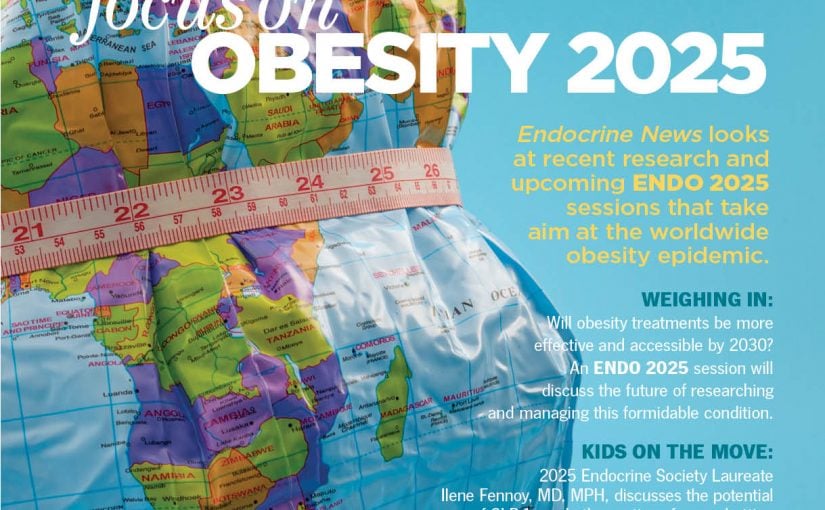THE SOCIETY RALLIES FOR MEDICAL RESEARCH
Dozens of Endocrine Society staffers joined thousands of others in attendance at the Rally for Medical Research on the steps of the Carnegie Library in Washington, D.C., on April 8 to protest proposed cuts to the NIH budget. Pictured with the Society’s Director of Government Affairs, Stephanie Kutler (L) are Kerry Burnstein, PhD, University of Miami, Miller School of Medicine, and Alan Schneyer, PhD, University of Massachusetts—Amherst.
Society Releases 2013 CLINICAL PRACTICE SURVEY
In order to guide its efforts on behalf of members, The Society has issued an invitation to its members to participate in a Clinical Practice Survey this spring. This anonymous survey is designed to elicit members’ treatment patterns for specific endocrine disorders and issues. Results from this survey will allow Th e Endocrine Society to use practice-level data to inform education program planning and other Society initiatives.
Invitations and reminders to participate have been released to members via email. Responses submitted by the survey deadline, June 15, 2013, will be entered into a drawing for a chance to win a complimentary edition of ESAP 2013 or Pediatric ESAP 2013—2014.
If you have not completed the survey, please respond to your original email as soon as possible.
New Global Initiative:
HIGHLIGHTS OF ENDO
The Endocrine Society will hold its first program in the new Highlights of ENDO series in Moscow, Russia, on May 19. Led by President William F. Young Jr., MD, MSc, the half-day program will be held in conjunction with the Russian Institute of Endocrinology’s Diabetology Congress. Th e program will feature an adrenal disorders symposium, review of the Society’s pituitary incidentalomas clinical practice guidelines, and updates in diabetes and bone. Joining Dr. Young on the slate of speakers will be Felix Beuschlein, MD, Ian Blumer, MD, Dolores Shoback, MD, and Carol Wysham, MD. Other Highlights of ENDO programs are being scheduled for China, Mexico, Brazil, and Japan. Additional information can be found at www.endo-society.org/ highlights.
What You Need to Know About
ABIM MOC CHANGES
The American Board of Medical Specialties (ABMS) MOC program, which is being implemented by the 24 specialty member boards, is undergoing some big changes. ABMS has announced revised requirements that impact how diplomates engage with MOC and at what frequency. Certification in Endocrinology, Diabetes, & Metabolism is administered through the American Board of Internal Medicine (ABIM); the American Board of Pediatrics (ABP) administers certification for Pediatric Endocrinology.
In early April, ABIM released information on its revised requirements, which will be implemented in early 2014. (Th e ABP began transitioning towards the new model for MOC in 2010.) Changes are outlined at www.moc2014.abim. org. Th e impact of these changes on endocrinologists has been outlined by Endocrine Society member Graham McMahon, MD, in his November 2012 JCEM commentary, “Implications of the Changes in Maintenance of Certification for Endocrinologists.” Read it here: http://jcem.endojournals.org/content/97/11/3897.full.pdf+html?sid=dbce308f-e935-4a42-82ef-664a9d2510bd.
Here are some answers to your questions about the MOC changes: What has changed for ABIM certificate holders who were initially certified after 1990? To maintain certification, endocrinologists certified through ABIM will need to complete MOC Part 2 and Part 4 on a five-year cycle instead of the previous 10-year MOC cycle. Though the examination frequency is retained at once every 10 years, completion of a Part 2 or Part 4 activity is required every two years (new), and 100 points of activity must be completed every fi ve years in order to be reported on ABIM’s website as “Meeting MOC Requirements.” Physicians will also have to complete a patient survey and a patient safety module by Dec. 31, 2018, and every fi ve years thereafter. Starting in 2014, physicians will earn 20 MOC points for their first MOC exam attempt and physicians in fellowship training will earn 20 MOC points for each year of training they successfully complete.
What has changed for those who were ABIM certified before 1990?
Certificates issued in or previous to 1989 (those who have been “grandfathered/grandmothered” into lifetime certification) have the option to engage in MOC, but engagement in MOC is not required to maintain certification. However, under the new MOC requirements, the ABIM and ABP will now be publically reporting whether a diplomate is “Meeting MOC Requirements,” regardless of his or her initial certification date.
Do ABP requirements differ from ABIM requirements?
No, the changes to the ABIM’s MOC requirements are consistent among the boards; however, the boards have some autonomy on how they accomplish the roll-out of the changes. ABP began transitioning to a continuous model of certification in 2010. During this transition, ABP MOC requirements vary depending on expiration date of certificates. Diplomates holding certificates containing an end date of 2013-2016 are required to complete Part 2 and Part 4 activities regardless of the activity point value.

